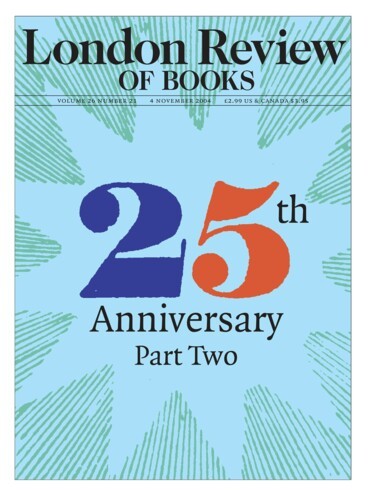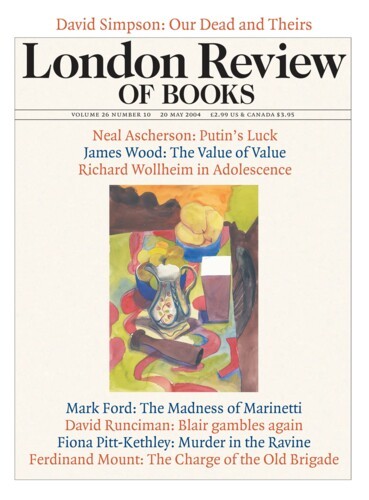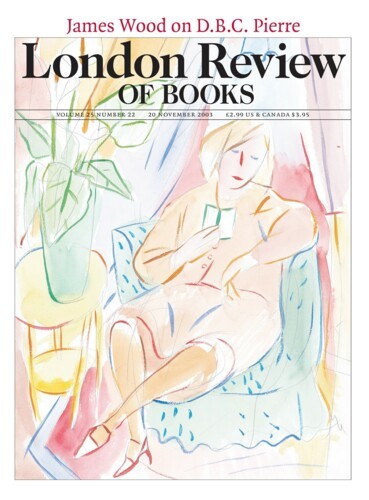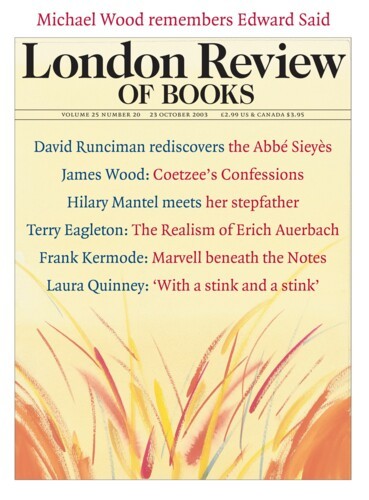Inside Mr Shepherd: in conversation with Jane Austen
James Wood, 4 November 2004
Comedy is the disguised priest who weds every couple, the German writer Jean Paul Richter said, and in the English novel the greatest of all disguised priests, the comic celebrant of happy unions, is Jane Austen. For the puff of marital harmony that ends every one of her books, among other things, Austen’s comedy began to be called ‘Shakespearean’ soon after her death. But...




